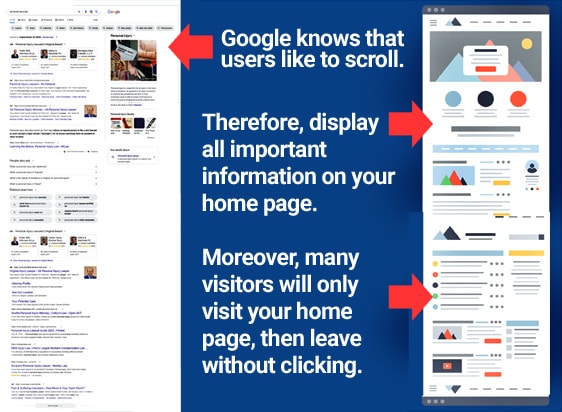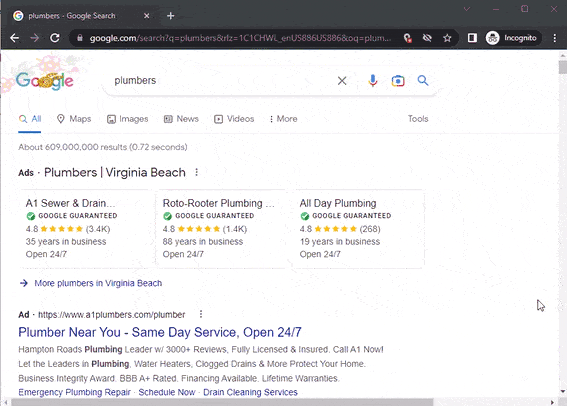
[ UPDATE ] July 3, 2024
Desktop first. Starting today, Google will begin to turn off continuous scrolling for the desktop Google Search results
Google Search will stop its continuous scroll user experience, where Google loads more results as you scroll past the first page of the search results. Instead, you will see the classic and old pagination bar at the footer of the Google Search results.
Also see, Google Ends Continuous Scroll: How Will it Impact Your SEO?
In the coming month, Google will remove continuous scrolls from the mobile search results.
What Google said. A Google spokesperson told Search Engine Land that today, June 25, the ability to continuously scroll on desktop search results will be removed, followed by mobile search results in the coming months.
The “Next” button at the bottom of the page will show on desktop search, and the “More results” button will show on mobile search.
Google said this change allows the search company to serve the search results faster on more searches instead of automatically loading results that users haven’t explicitly requested. Google also told us that loading more results automatically didn’t lead to significantly higher satisfaction with Google Search.
Much discussion has been about Google search results appearing as an endless or infinite scroll. Google infinite scrolling significantly impacts the traditional ranking methodology of websites.
CHANGES IN BROWSING BEHAVIOR
The infinite scrolling format allows for a continuous and seemingly never-ending website content update. Users now see vast information on search engine result pages (SERPs), and their browsing behavior changes.
In this regard, people will be encouraged to scroll, scroll, scroll.
USE META TAGS TO CAPTURE YOUR AUDIENCE
Setting aside the top three organic search results, aka the ‘Top Three Results’, users are more inclined to scroll down the page until they see information or images that catch their eye. Therefore, compelling title and description tags are paramount.
In otherwords, well-written meta-tags double your chances of getting clicks and phone calls when users find your website in search results.
IS IT AN INFINITE SEARCH SCROLL? NOT REALLY
We tested and searched popular search phrases for plumbers, personal injury lawyers, and dentists.

We counted sixty (60) organic search results in every case before encountering the ‘More results tab’ seen below.
PAGE POSITION NOW BECOMES A NUMBERS GAME
SEO specialists use SERP, Search Engine Ranking position, to measure where a website ranks in Google. Before the infinite scroll, there was pagination—for example, Page One, then Page Two and Three.
Similarly, SERPs will now become position #1, then position #2, position #3, and on it goes to position (60) sixty.
TOP 3 IS STILL THE PLACE TO BE
The top three Google search results get over 50% of all the clicks. The websites found in positions four through seven receive 20-40% of attention and clicks, followed by the rest of the search page, generally getting hardly any clicks – only 2 to 9% of total clicks.
APPLY THE INFINITE SCROLL METHOD TO YOUR WEBSITE
Setting aside SEO factors, experts agree that having the most critical homepage or landing page content is essential. On average, about 80 website visitors will only see one page during their visit and leave their site without clicking anything. Therefore, display crucial elements (i.e., value proposition, CTA, contact) above the fold and have the rest visible on scroll without relying on clicks to other pages.
For example, take a look at Amazon’s home page. Furthermore, adding additional content and keyphrases to your home page improves your organic SERP.
3 THINGS YOU CAN DO NOW
1. Make it your SEO end goal to appear in the first, second, or third position on Google search results.
2. Write attention-grabbing meta-tags that stand out in search results.
3. Add compelling content, pictures, visuals, and videos to your home page to increase your chances of getting inquiries.
Also, see
Can Chat GPT be detected?
Are You Getting Found by Google? Here’s How To Be Sure.




